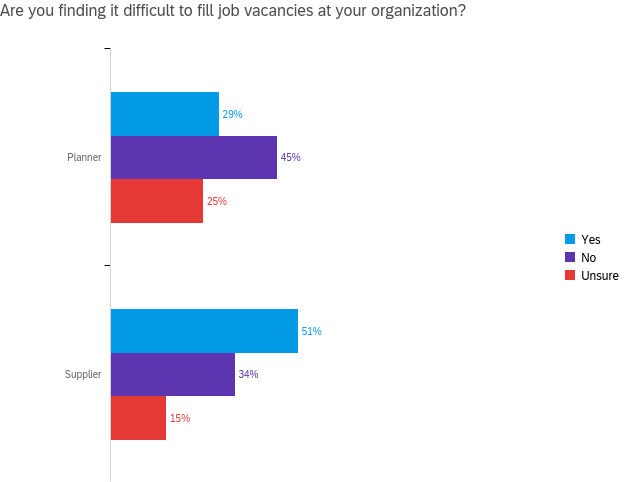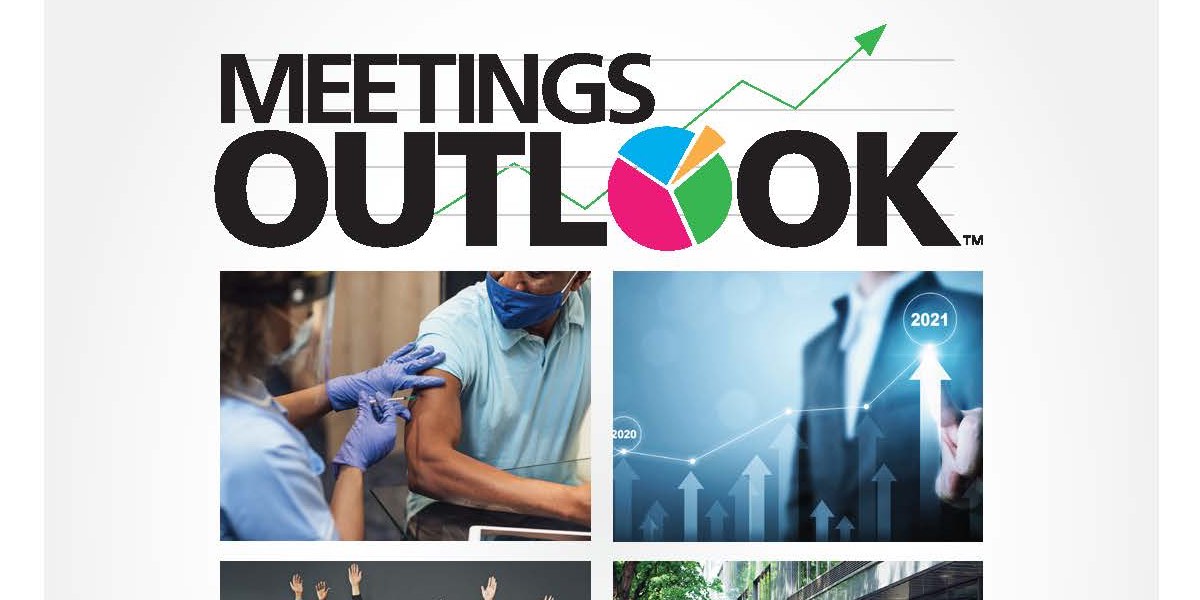As groups are reigniting in-person events, respondents to MPI’s quarterly Meetings Outlook survey note that staffing and education challenges continue.
The staffing landscape remains troubled—and looks to have gotten a bit more complicated—with 37% of respondents to the fall 2021 Meetings Outlook survey finding it difficult to fill job vacancies are their organizations. That’s up from 29% reporting the same in the previous quarter. This comes at a time when the phrase “the great resignation” is being thrown about because so many people have seemingly left the workforce.

At the same time that some have left the job market, there’s also less hiring going on, according to respondents. Over the past quarter, 3% fewer respondents reported increases in hiring for full- or part-time positions. Additionally, there was a 7% drop in respondents indicating increases in hiring for contract roles.
Combined, this looks as though there are fewer open positions while at the same time it’s become more difficult for industry organizations to find suitable candidates. In this reporting quarter: Fewer positions and fewer qualified applicants.
One important aspect of professional associations is providing those job seekers and organizations with some degree of assistance by offering education to help prepare meeting pros for the future business landscape.
The majority of Meetings Outlook respondents (64%) believe that the education necessary to prepare for the role of tomorrow’s meeting professionals is readily available. There was a slight variance in survey results when comparing planners and suppliers (63% and 65% answered in the affirmative, respectively). With 24% of respondents indicating uncertainty about this topic, a mere 12% believe the necessary education is not, at this time, readily available.
The three skills buckets that respondents most feel are needed for the future meeting professional: technology design/programming (54%); creativity, originality and initiative (43%); and event design and architecture (35%).
Follow-up discussions with some survey respondents revealed insight into what they believe may be behind this difficulty in filling open positions with qualified personnel.
“The million-dollar question!” says Lindsay Plath, CMP (MPI Chicago Area Chapter), meetings and professional development manager, Illinois Association of School Business Officials. “I think a lot of it has to do with what organizations are offering in terms of salary and benefits. We work in a stressful industry—if an organization is wanting a candidate with years of meeting and event experience, the candidate wants to see their compensation reflected accordingly. I also feel that if an organization is not offering flexible remote work options, they are missing out on qualified candidates.”
Brad Dean (MPI South Florida Chapter), CEO at Discover Puerto Rico, says a strong visitor numbers are one of the driving factors for hiring challenges in Puerto Rico.
“We’ve emerged from earthquakes and COVID in 2020 to seven consecutive months of all-time record tourism numbers in 2021, and most businesses were simply not prepared for that unprecedented ramp-up,” Dean explains. “Thankfully, our business partners are finding a way to manage this record volume while still delivering warm hospitality and great service.”
One key side effect of the hiring challenge, according to Mark Nitti (MPI Southern California Chapter), a sourcing sales executive and meetings expert with American Express Global Business Travel, is that some roles have been filled with, perhaps, untrained or improperly trained workers.
“The past several [individual and group] stays I have experienced have been poor as it relates to service,” Nitti says. “I feel the level of training has gone down and the attitude of the front line...has been substandard. Very impersonal as to the point that they really don't care if you are in their hotel or not. The standards of service do not reflect the flag of the property.”
He believes training is imperative—something that, honestly, even veteran meeting and hospitality professionals may need as the business and experience landscape has shifted due to and throughout the pandemic.
“Invest in training, hire experienced managers and staff,” Nitti says. “Seek out and utilize the knowledge of those who have made this industry a career already. I would, as a buyer, much rather work with a senior sales manager who understands the business, as opposed to five different junior managers, in one year. All junior staff and managers need to be assigned a mentor so they can gain practical experience and learn how to service a customer.”
Read the fall 2021 Meetings Outlook report, focusing in greater detail on realized and projected steps of the industry’s recovery, now.

